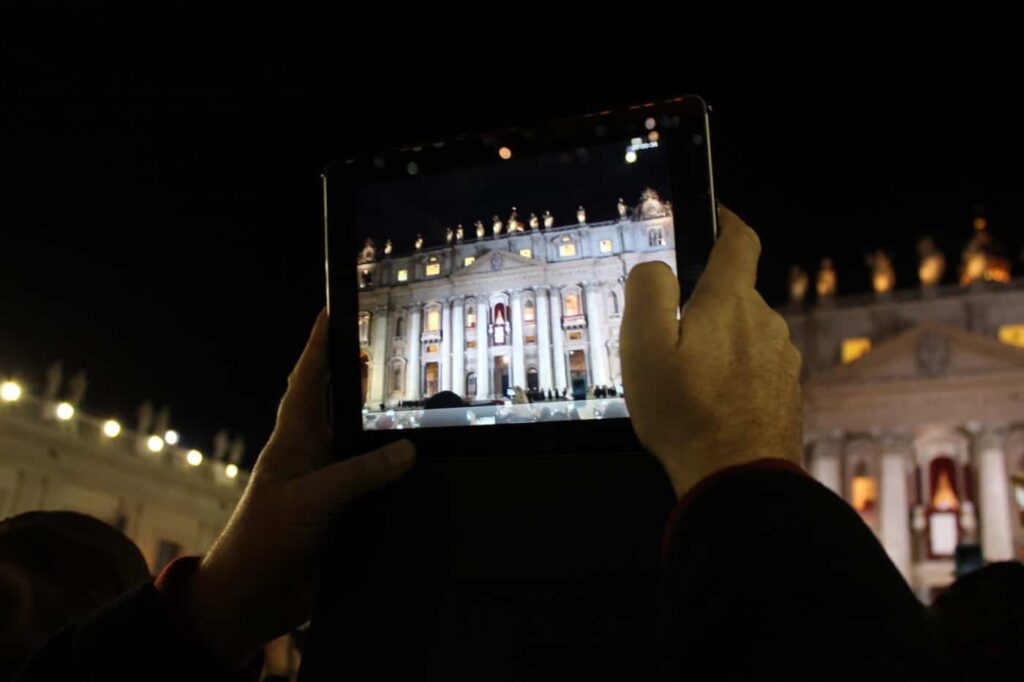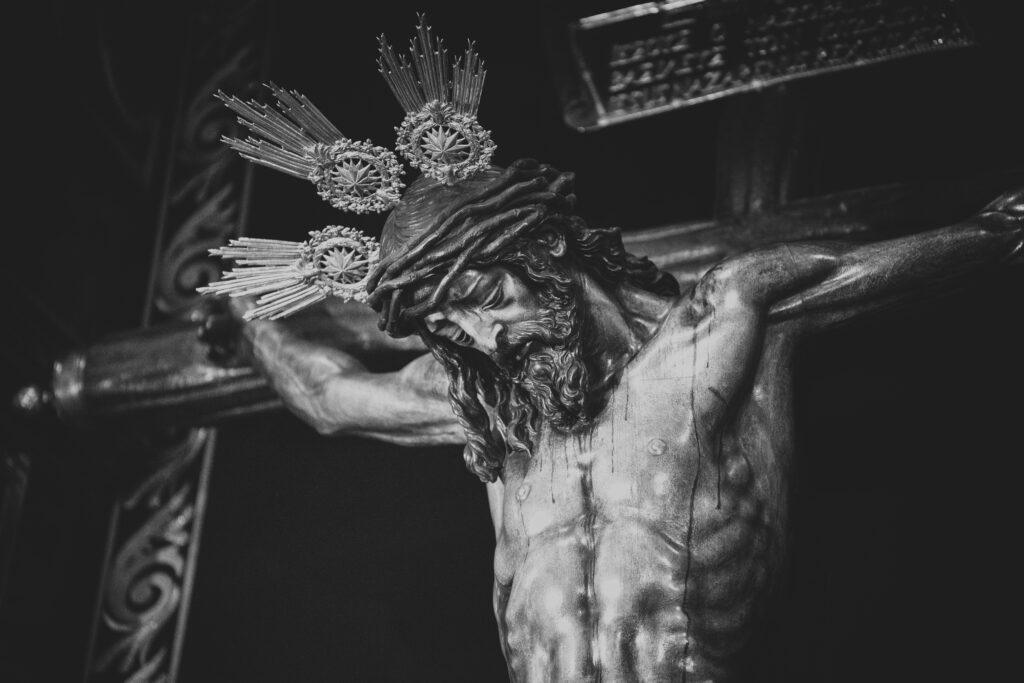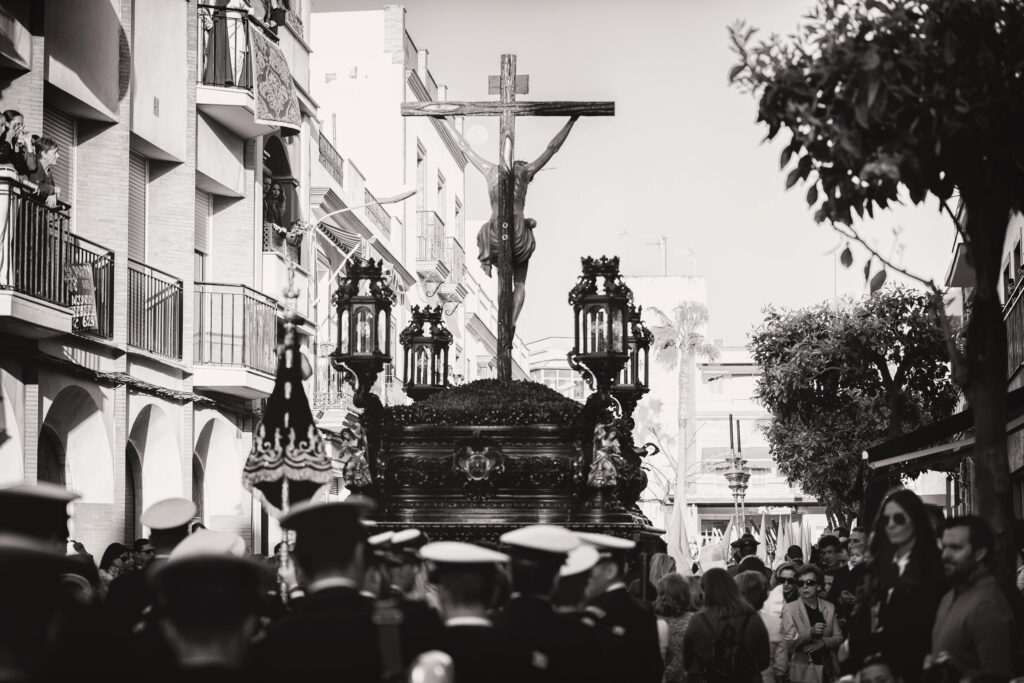Why is the Catholic Church “holy”?
Questions and Answers

Why is the Catholic Church “holy”? Father Jairo Yate, priest and investigating judge in the diocese of Ibagué, Colombia, answers this question according to the magisterium of the Church itself.
What does the magisterium teach about the Church?
Faith confesses that the Church […] cannot fail to be holy. Indeed, Christ, the Son of God, who with the Father and the Spirit is proclaimed “the only holy one,” loved his Church as his spouse. He gave himself up for her to sanctify her, united her to himself as his own body, and filled her with the gift of the Holy Spirit for the glory of God (Lumen Gentium 39). The Church is therefore “the holy People of God” (Lumen Gentium 12), and its members are called “saints” (cf. Acts 9:13; 1 Corinthians 6:1; 16:1) (Catechism of the Catholic Church, 823).
How does the Church become holy?
The Church, united to Christ, is sanctified by Him, and in Him, she has also been made a sanctified. All the Church’s works strive to achieve “the sanctification of men in Christ and that glorification of God” (Sacrosanctum Concilium 10).
Charity is the soul of holiness to which all are called: “it governs all the means of sanctification, informs them and leads them to their end” [132]. Hence, charity toward God and toward one’s neighbor is the distinctive sign of the true disciple of Christ (Lumen Gentium 42).
If we are sinners, how can the Church be holy?
The Church “is therefore holy, even though she includes sinners in her bosom, because she enjoys no other life than the life of grace; her members, indeed, if they nourish themselves with this life, are sanctified; if they depart from it, they contract sins and stains of soul that prevent her holiness from spreading radiantly. Therefore, she afflicts herself and does penance for those sins, having the power to free her children from them through the blood of Christ and the gift of the Holy Spirit” (Paul VI, Credo of the People of God, 19). (cf. Catechism 823 – 827).
If the Church is holy, are we called to be holy?
“All Christians, of whatever state or condition, are called, each in his own way, to the perfection of holiness, whose model is the Father himself” (Lumen Gentium 11).
“Saints have always been a source and origin of renewal in the most difficult circumstances of the Church’s history.” Indeed, “the Church’s holiness is the secret source and infallible measure of her apostolic work and missionary zeal” (Catechism 828).
Pope Francis says: “Every Christian is called to holiness.” Holiness does not consist primarily in doing extraordinary things, but in letting God act. And the encounter between our weakness and the strength of his grace is having confidence in his action, which allows us to live in charity, to do everything with joy and humility, for the glory of God and in service to others.
Can I be a saint? As God is holy and his Church is holy
Francis repeatedly insists that each of us become aware of the need for what we believe to coincide with what we do, or with what we preach
In matters of faith, scandals must be avoided. The commandments of the law of God are the basis for an excellent Christianity. If you go to Church, live as a son, as a brother, always bear witness.
We must think of a life plan, towards holiness. The modern world does not offer spaces for a holy life, pleasing to God, useful to society. It is a world controversial in its ideas, in its ethical and moral approaches, in its behaviors.
The life plan for a saint can be: He who does not recognize himself as a sinner does not achieve the goal of holiness. Vanity and pride strongly harm the path to holiness. Feeling satisfied with oneself can become like a stone in the shoe, to achieve a life of holiness.
Duplicity, lies and falsehood are opposed to a holy personality. Sadness and ingratitude are not signs of holiness. Mediocrity, if you settle for little, will not become a saint. Criticism and gossip are not a means to holiness. (Pope Francis. Gaudete et exsultate).
The apostle Saint Paul proposes charity as an effective means to achieve a healthy and holy life: one that takes others into account, that purifies thought, that guides reason, that focuses on what is right: Charity is patient, it is kind; charity is not envious, it is not boastful, it is not puffed up; it is respectable; it does not seek its own interest; it is not irritable; it does not take account of evil; it does not rejoice in injustice; it rejoices in the truth. It excuses all things, it believes all things, it hopes all things, it endures all things (1 Corinthians 13:4-7). Charity is the greatest of virtues (cf. 1 Corinthians 13:13).
Jesus Christ, the best example of holiness for everyday life
The Gospel, according to Saint Matthew, offers the opportunity to all of us who are believers and baptized to find the practical and correct way to lead a life pleasing in the eyes of God. A holy life: That person who does what pleases his Lord.
It begins in chapter 5 and extends to chapter seven. (Matthew 5,1-7,29). The first path of the Gospel is the beatitudes. Jesus Christ defines who can be a blessed person: The poor in spirit, the just, the merciful, the pure of heart, etc. (5, 1-12) –
The second path is the new lifestyle proposed by the Savior of the World: “He who fulfills the law of God will be great (5,19)”. “He who is angry with his brother will be guilty” (5,21). “Do not swear in any way. (5,34). No, to the law, an eye for an eye and a tooth for a tooth” (5:38). “Love your enemies and pray for those who persecute you (5:43). Be perfect, as your heavenly Father is perfect” (5:48).
The imitation of Christ allows us to become saints. This is made possible by the presence in us of the Holy Spirit, who is the soul of the multiform holiness of the Church and of every Christian. It is the Holy Spirit who moves us interiorly to love God with all our heart, with all our soul, with all our mind, with all our strength (cf. Mark 12:30), and to love one another, as Christ has loved us (cf. John 13:34).
Related

Dying to Self, Being Born to Love
Luis Herrera Campo
09 April, 2025
2 min

Easter or Nothing: The Heart of the Christian Faith
Luis Herrera Campo
08 April, 2025
2 min

Why are long-lasting couples happy?
Exaudi Staff
08 April, 2025
3 min

The Tradition of Holy Week Processions: A Link between Faith, Community, and Culture
Exaudi Staff
07 April, 2025
3 min
 (EN)
(EN)
 (ES)
(ES)
 (IT)
(IT)

